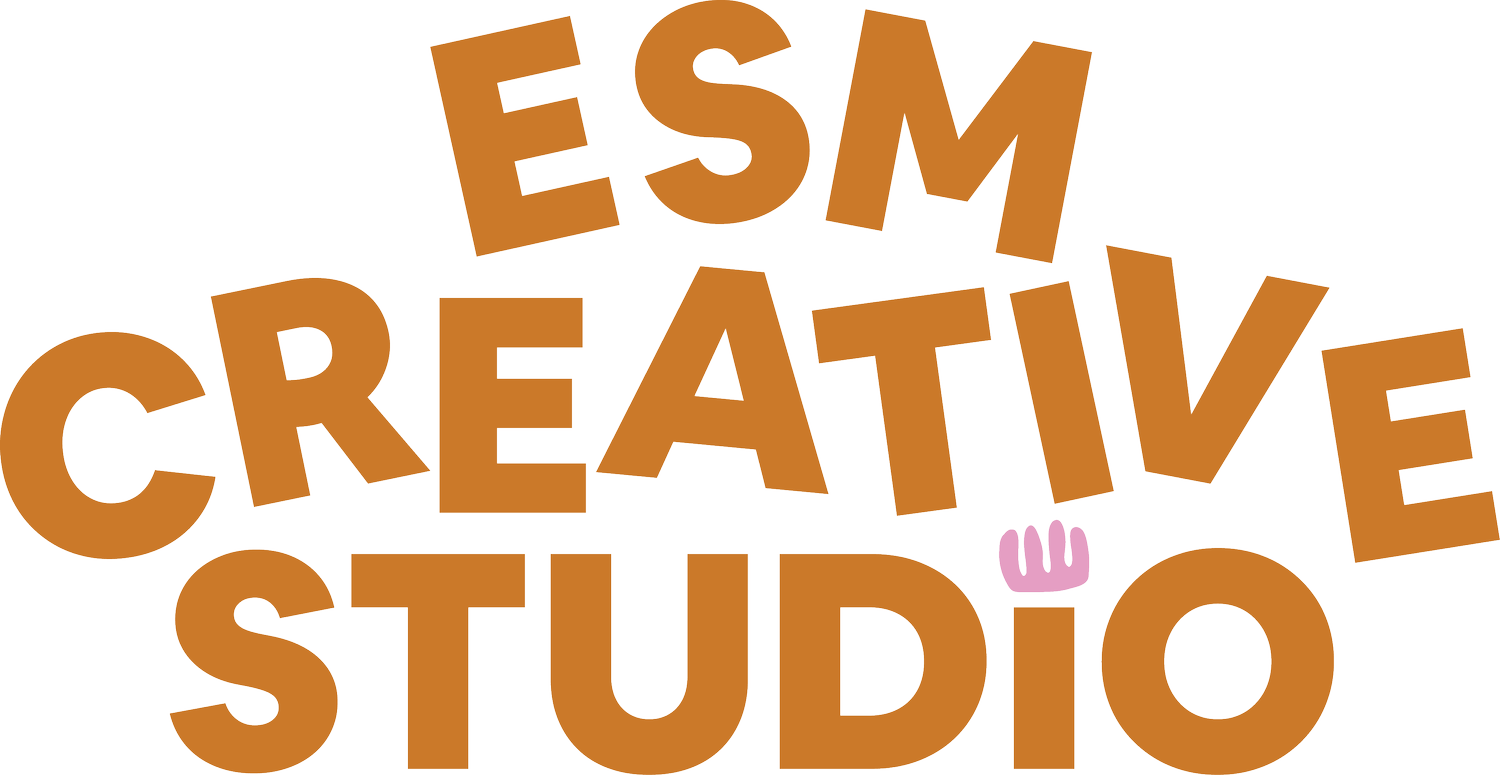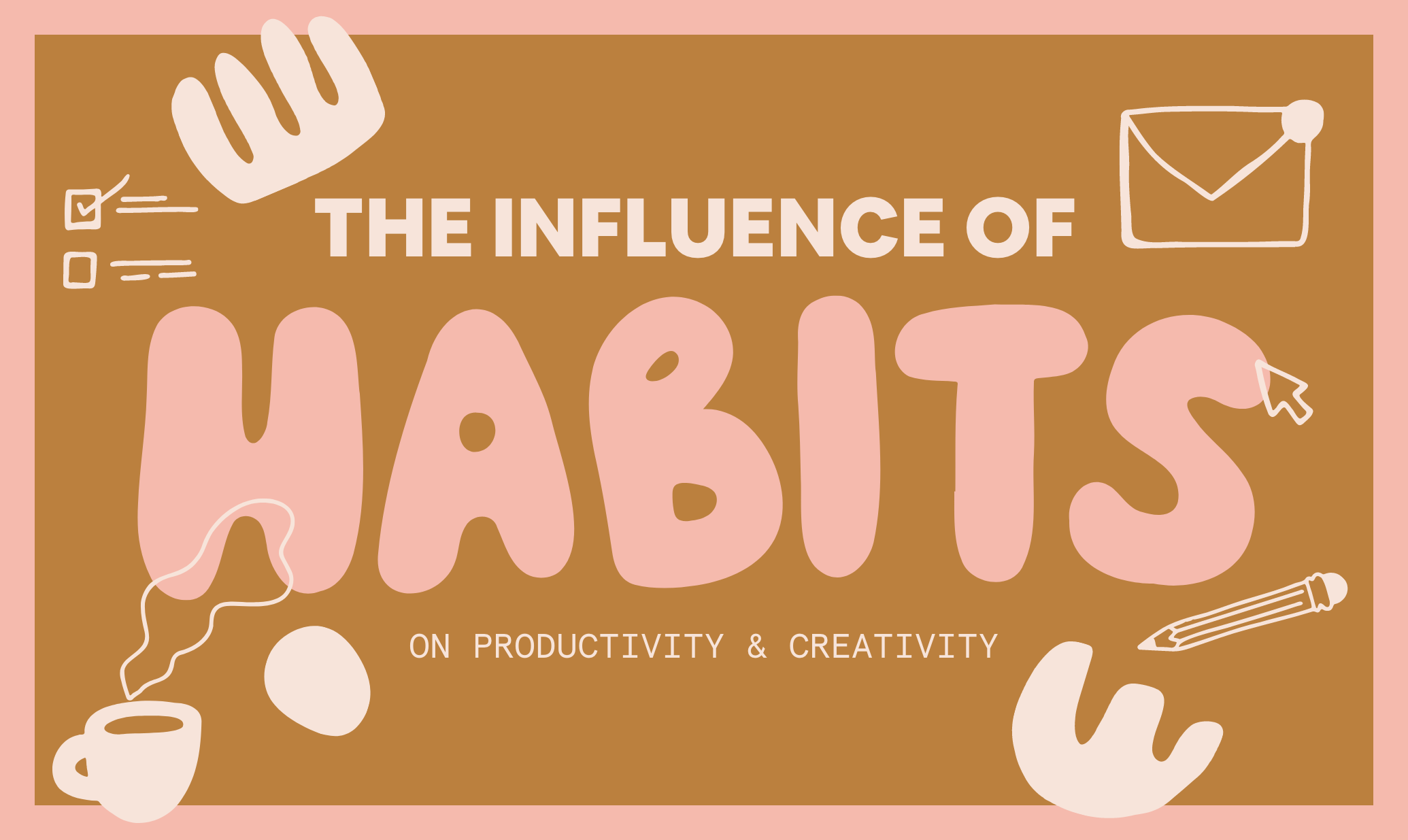THE INFLUENCE OF HABITS
ON PRODUCTIVITY & CREATIVITY
TL;DR Habits create creative freedom!!
On average, human beings make over 30,000 decisions per day. This constant decision-making can be mentally exhausting and lead to decision fatigue. Forming habits is one way to break this cycle of endless choices. Habits are automatic behaviors that we do without consciously thinking about them. When a behavior becomes habitual, it requires very little mental effort or willpower.
By building good habits into our daily routines, we can significantly reduce the number of active choices we have to make each day. This reduction in decisions and cognitive load frees up mental bandwidth. With less mental energy being expended on basic tasks and routines, we gain back time and capacity for more creative pursuits. We have more mental space to relax or get back to activities we are passionate about but often don't have the time or energy for.
In summary, habits simplify our overloaded daily routines. They free our minds from the burden of excessive decision-making. This regained mental capacity gives us the freedom to spend our time and energy on what really matters - being more creative, relaxed, and doing what we love.
Creating habits
goal and intention-setting
Setting specific goals gives direction and purpose to your habits. Without clear goals, it's easy for habits to fall by the wayside when motivation runs low. Goals help sustain motivation over time. They also provide a metric for evaluating your habits. If a habit is not moving you closer to a defined goal, it may not be worth keeping. Setting outcome-based goals versus process goals can be especially useful for habits. An outcome goal focuses on the concrete result you want your habit to produce, which clarifies the purpose and desired impact of the habit. Effective goal-setting gives your habits focus, motivation, and a means to track progress.
HERE is a blog post I wrote specifically about setting goals.
I also have a Notion Template that is intention-setting focused! It can help you break down your goals.
frequency
This is very important to set the frequency in order to actually turn them into habits. In my practice, I set daily, weekly, monthly, and quarterly habits.— I physically write them down and then use the notion template above to plan out the frequency.
For daily goals, I have goals that are repeated daily & some that are on certain days of the week. For daily repeaters, I have my morning five, mentioned below, daily closing & cleanup, and daily design practice. For the weekly habits, here is an overview:
Monday
Client Follow-Ups
Contractor Hubs
Social Media Plan
Family Calls
tuesday
Laundry
Call Day
wednesday
Social Media (Pinterest and LinkedIn)
Head down work
thursday
Water plants
Add work to portfolio
Call Day
friday
Billing & Accting
Set up Bujo
Review phone pics
sunday
Sunday Reset
For monthly habits, I have a few things I track: volunteering, solo activity, 3 scheduled hours of hobby time, and content cal.
I also set Monthly goals for myself. We have a #goals channel in the Golden Hour Guild slack channel that really helps me stay accountable and have weekly check-ins that keep me on track for the month. You can learn more about Golden Hour Guild HERE.
Keeping habits
Habit stacking
Habit stacking is a technique for building new habits by "stacking" them onto existing habits. The idea is to take a current habit you already do each day without much effort, and then add your new habit right after it. For example, if you already have a habit of making coffee each morning, you could "stack" on the habit of meditating for 10 minutes after making your coffee. Since making coffee is already an ingrained behavior, it can serve as a trigger for your new meditation habit. The existing habit stacks the new behavior on like a stack of dominoes. Habit stacking works because you are using existing habitual momentum to carry you into the new routine. It makes habit formation easier because you have a consistent trigger and don't rely solely on willpower.
Morning five
This is a habit-stacking technique that I use. I have five habits that I have to get done first thing in the morning. I rotate these based on my goals.
Currently, my morning five are:
Meditation via Headspace
Reading my morning newsletters (These switch up)
French lesson via Duolingo
Listen to 1 podcast (Usually on my walk)
Morning Pages
Habit tracker
Habit trackers are tools used to measure and record the frequency of a habit over time. They help monitor your adherence and progress with habit-building. A common example is a simple paper calendar where you mark off each day you stick to your habit. This visual chain provides motivation and accountability. Other tracking options include apps, journals, charts, and spreadsheets. The key is choosing a tracking method you'll consistently use. Record the habit, date, and any relevant notes or metrics. Review the tracker periodically to analyze your progress and patterns. Tracking makes habits tangible and evaluates what's working. Most importantly, it brings self-awareness to habit formation. A tracker allows you to celebrate successes, learn from lapses, and sustain motivation over the long term.
Reward system
Implementing a reward system can greatly boost your habit formation. Habits can be hard to establish because the benefits are usually delayed. Having an immediate reward makes the habit more enticing and enjoyable at the moment. This increases motivation and makes you more likely to stick with the behavior. Rewards provide positive reinforcement and associate the habit with a pleasurable experience. Useful reward ideas are things like treating yourself to something special, taking some personal time, or doing an activity you enjoy. Just be sure the reward aligns with your goals. The reward should motivate the habit, not conflict with it. A system needs to be put in place ahead of time to determine what the reward will be and when it will be given. The reward you get for maintaining a habit makes the work feel worthwhile. This incentive effect helps anchor the habit.



